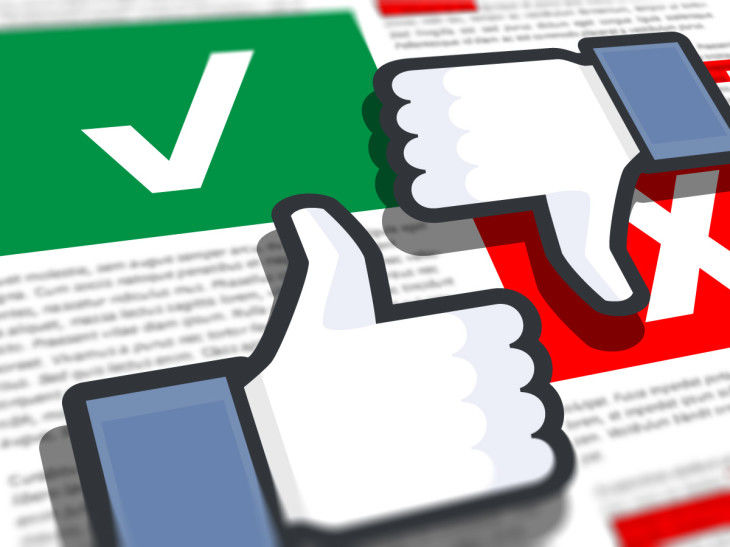Facebook’s Data Breach and America’s Diversity Problem
Facebook’s Data Breach and America’s Diversity Problem
April 17, 2018
At Mark Zuckerberg’s congressional hearing on April 10, Ted Cruz made headlines by pressing the Facebook CEO on the site’s policy on speech. The Texas senator accused Facebook of “a pervasive pattern of political bias,” namely the silencing of conservative voices. He also pressed Zuckerberg on whether Facebook is a “neutral public forum,” to which Zuckerberg countered it is “a platform for all ideas,” excluding only things such as “hate speech, terrorist content, obscenity.” While this sounds like two people quibbling over details, the implications of what Cruz is saying, and how Zuckerberg is responding, are huge for how we think about social media and reasonable discourse as a whole.
The problem, which Cruz points out, is that when it is Facebook who gets to decide what is defined as hate speech, a platform that could be neutral is instead subjected to Facebook’s speech policy. This is problematic because two people of good will could very easily look at the same post and disagree as to whether it qualifies as hate speech. Since, as Zuckerberg admits, the platform is situated in the very-liberal Silicon Valley and is therefore run by a disproportionate number of liberal-leaning employees, the site’s view of what hate speech is caters to the left. Further, despite widespread belief, hate speech is not explicitly listed as an exception to free speech protection. Facebook only began removing hate speech in 2013 when pressure from advocacy groups led them to agree to remove hate speech within 24 hours.
Although neither Cruz nor Zuckerberg mentions it, this argument of free speech versus hate speech has important implications for the alt-right. The problem with simply removing hate speech is that it is often counterproductive, emboldening those who spew the rhetoric. The hate spewed by prominent alt-right accounts, including users like Richard Spencer, Ricky Vaughn and Baked Alaska, do not die when their accounts are removed. On the contrary, the marginalization, though deserved, of those who spew hate in the face of the establishment tends to do the opposite. Instead of silencing hate, the removals of their accounts act as a certain kind of validation, as these people and their followers believe they are being removed because they are speaking truth to power, not because they are hateful.
In many ways, the typical alt-right internet user differs little from a middle-school bully, they thrive off of attention and fear. When we condemn and attempt to silence these people, we only strengthen them. Somehow their removal makes them into martyrs for the larger movement. As Spencer said, after being removed from Twitter, “I am alive physically but digitally speaking there has been execution squads across the alt-right.” As more and more of the alt-right is being removed from prominent social media sites, their followers have responded by leaving the platforms too. They move to places like Gab, Voat, and 4chan, where their ideas are not only left alone, but accepted and shared. In this kind of echo chamber of hate, the alt right further alienates and radicalizes itself, growing in strength through community.
This is dangerous, as seen in the so-called “Pizzagate” conspiracy, where the flawed and debunked idea that the DNC was a part of a widespread child sex-trafficking ring was spread. The conspiracy began on Twitter, where it was attacked and posts about it were removed, and eventually led to the shooting of the Comet Ping Pong restaurant. The theory, which is as bizarre as it is unfounded, has not gone away yet, as each new piece of evidence to the contrary is fit into an increasingly complicated conspiracy. The problem is that while Twitter thought it was doing good by removing the hateful rhetoric, it only strengthened the beliefs of people who already distrust the establishment. Today, the conspiracy is still alive and well on Voat, where it goes unchallenged.
Clearly, the task of eliminating support for the alt-right is complicated. The fix to this issue is not clear, but many of our current practices for doing so are not working. The actions of Facebook and other social media are only adding fuel to the fire, despite their good intentions. Eliminating hate should be a goal for social media and society as a whole, but silencing it is not the answer. While Cruz attacks the CEO for limiting free speech, he leaves out a very important subplot to the conversation of what should and should not be allowed on the internet. The alt-right may be a minority group in our country today, but they do have power. Strangely, to keep them in check, we all, including Zuckerberg, must listen to Ted Cruz.










